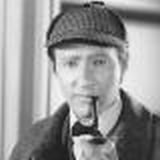Options
Another extremely minor typo: Section 31 mission
 Data1001
✭✭✭✭✭
Data1001
✭✭✭✭✭
Can you see it?

That's either a quotation mark or a double apostrophe after "doppelganger".
I feel pedantic even bringing up something so minor, but as it hasn't been fixed after several years I thought I might as well.

That's either a quotation mark or a double apostrophe after "doppelganger".
I feel pedantic even bringing up something so minor, but as it hasn't been fixed after several years I thought I might as well.
Could you please continue the petty bickering? I find it most intriguing.
~ Data, ST:TNG "Haven"
2
Comments
An Oxford comma is debatably acceptable if there is a list. There isn’t in this case.
But since there is no list (as you say), that isn't even purporting to be an Oxford comma (aka "serial comma"). I think it's a perfectly legit usage of a comma, since the two parts of that sentence could be considered independent clauses.
Could you please continue the petty bickering? I find it most intriguing.
~ Data, ST:TNG "Haven"
You are my favorite forum dude Data but I have to agree with The Admiral here. The comma should not be there
Okay, now you've issued a challenge that I can't back down from, haha — y'all want some corroboration, then?
First, let's make sure we understand the term "independent clause" — basically defined as something that can stand alone as a complete sentence. Looking at the first sentence in that passage above, we have a compound sentence containing two independent clauses. If we leave out the conjunction, they can each stand completely on their own:
In a compound sentence, they are joined by what is called a coordinating conjunction; in this case, the word "and" serves that purpose. It is generally accepted to be okay to leave off the comma if the two independent clauses are short. But that is not the case here — and otherwise, when two independent clauses are joined by a conjunction (or "joining word"), that joining word should be preceded by a comma. This ain't just my rule, mi amigo — allow me to share some substantiation from several reputable authorities.
From the Chicago Manual of Style:
From the Hamilton College website:
From the Modern Language Association website:
From ESL Library:
From The Nature of Writing (created and run by an English professor at the University of Edmonton):
And one of the ultimate bibles of grammar, The Elements of Style, says:
Additional documentation on sentences with independent clauses joined by a coordinating conjunction:
https://www.grammar.com/Commas-and-Independent-Clauses
https://owl.purdue.edu/owl/general_writing/punctuation/independent_and_dependent_clauses/index.html
http://www.getitwriteonline.com/archive/020204WhenCommaBfAnd.htm
http://grammar.ccc.commnet.edu/grammar/indep_clauses.htm
https://webapps.towson.edu/ows/modulecs_fs.htm
https://college.cengage.com/english/raimes/digitalkeys/keyshtml/connecti.htm
http://simplewriting.org/the-secret-trick-to-master-commas/
Could you please continue the petty bickering? I find it most intriguing.
~ Data, ST:TNG "Haven"
No, it says "very short and closely connected" — they are not very short.
Sorry, man — that's not what "independent" means in this case. Independent clauses can be about the same person or subject. In fact, when part of the same sentence, they often are. The fact that the two clauses are both "connected by Sisko" means nothing to the grammatical rule.
Heh. TBH, I think you are treading through some denialism here, but I'm just gonna let this one go, since I believe I've made my case as best I can.
Could you please continue the petty bickering? I find it most intriguing.
~ Data, ST:TNG "Haven"